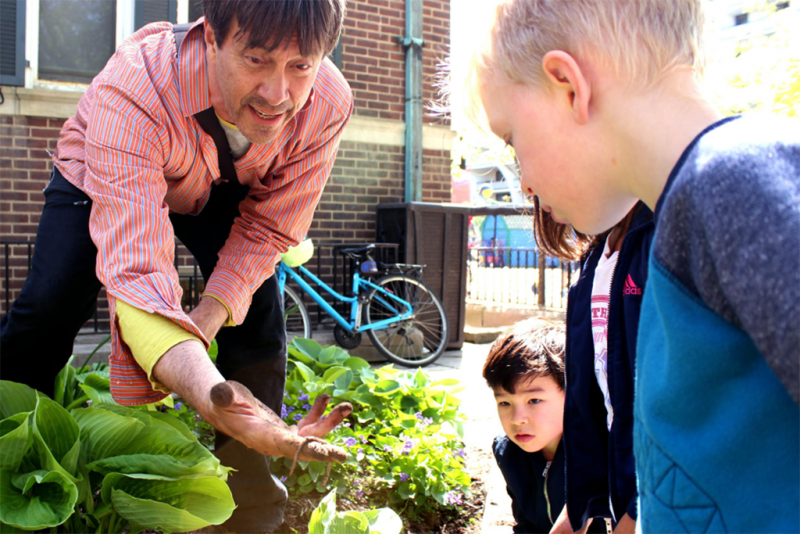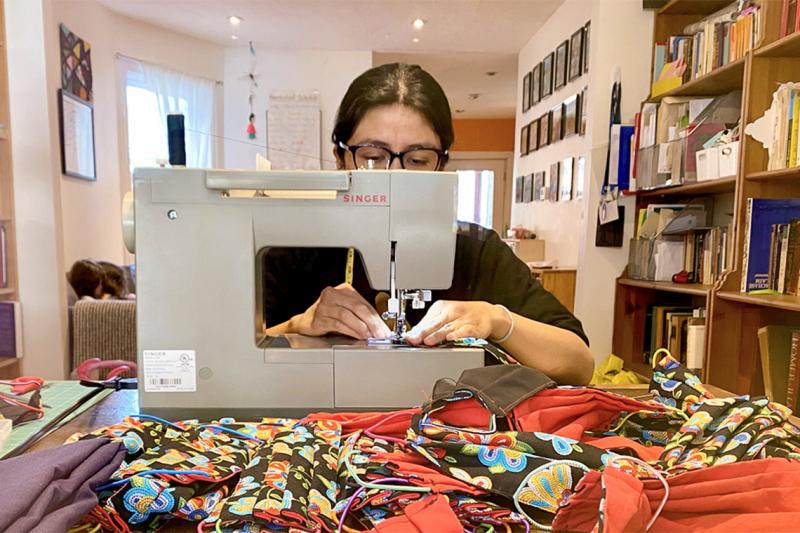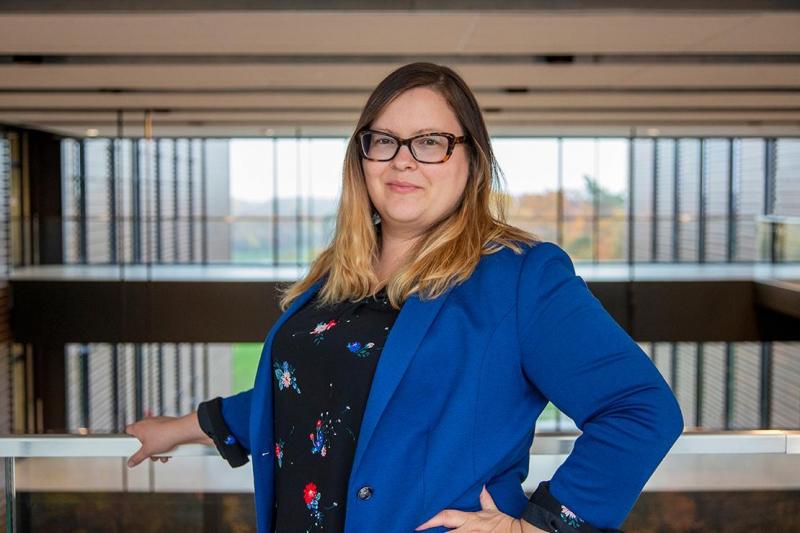June 21, 2021 | Campus
Celebrating National Indigenous Peoples Day
Head dancer Miyopin Cheechoo during the 2019 Honouring Our Students PowWow,at the Goldring Centre for High Performance Sport,March 16,2019. (photo by Nick Iwanyshyn)
June 21 is National Indigenous People’s Day. For generations, many Indigenous peoples and communities have celebrated their culture on or near this day due to the significance of the summer solstice as the longest day of the year. Since 1996, National Indigenous Peoples Day has been officially celebrated with ceremonies and celebrations that bring Indigenous people and communities together and highlight cultural performances and activities, displays of arts and crafts, and events that recognize the contributions by Indigenous people across Turtle Island.
Read more about Indigenous excellence and research in the U of T community over the past year, and the work being done to embed Indigeneity into the fabric of the University.
indigenous voices in our classrooms

Natural Curiosity: How U of T and partners enhanced Ontario's inquiry-based learning curriculum with Indigenous perspectives
Indigenous partners and a team at OISE rewrote a key Ontario teacher’s resource to centre Indigenous perspectives. Doug Anderson – Métis/Bungee, writer, Indigenous educator, and a parent at the The Dr. Eric Jackman Institute of Child Study (JICS) Laboratory School – helped revise a teacher's guide for the Natural Curiosity program, which has since been used by tens of thousands of children. Learn more about the Natural Curiosity guide >
Award-winning Indigenous authors to teach Indigenous literature, oral traditions and creative writing at U of T Scarborough
Award-winning Indigenous authors Kateri Akiwenzie-Damm and Randy Lundy say storytelling is important in reconciliation. The two joined U of T Scarborough's department of English as assistant professors, teaching stream, in 2020. “There’s lots of learning to be done from Indigenous literatures and much of it is about a shift in perspective – walking for a time in someone else’s moccasins,” says Lundy, a member of the Barren Lands (Cree/nehiyaw) First Nation in Manitoba. Learn more about Kateri Akiwenzie-Damm and Randy Lundy >
U of T researchers to offer Indigenous cultural safety course to students in health professions
A new cultural safety initiative at the University of Toronto’s Waakebiness-Bryce Institute for Indigenous Health aims to ensure the next generation of health professionals is better equipped to provide care to Indigenous Peoples. “The New Respect Indigenous Cultural Safety Online” project aims to provide widespread online cultural safety training – which draws attention to unequal power relationships within health care – to U of T students in health-care professions. Learn more about The New Respect Indigenous Cultural Safety Online project >
U of T Mississauga launches Indigenous Entrepreneurship Program
Jonathon Araujo Redbird and Christina Tachtampa partnered with U of T Mississauga's ICUBE entrepreneurship hub to help Indigenous students and alumni realize their business dreams with entrepreneurship programming that incorporates traditional Indigenous knowledge and values. “We will combine Indigenous knowledge with Western pedagogies to create a new learning framework that empowers the next generation of Indigenous entrepreneurs,” says Redbird, who is part Ojibway. Learn more about UTM's Indigenous Entrepreneurship Program >
CELEBRATING ALUMNI ACHIEVEMENT

Alumna Fernanda Yanchapaxi makes more than 1,000 masks for people in need: 'I felt the need to act'
When her grandmother in Ecuador died early in the pandemic, Fernanda Yanchapaxi (BEd 2011) was unable to travel home to grieve with her family. So she focused on where she was. “As an Indigenous person, I feel I have an obligation to the people who live in the same land as me," she says. “I should do what I can do to help.” She sewed more than 1,000 non-medical face masks, donating them nurses, grocery workers, and women in need. Learn more about Fernanda Yanchapaxi's mask project >
Author and alumnus Cody Caetano says Indigenous Voices Award win signals he's 'on the right path'
Cody Caetano (BA 2017 UTM, MA 2019) won the 2020 Indigenous Voices Award for best unpublished prose in English for excerpts from his debut memoir Half-Bads in White Regalia, which will hit bookstores in spring 2022. An enrolled member of Pinaymootang First Nation, Caetano says about his time in U of T's creative writing master's program: "I got to experience being a mentee with the one and only Lee Maracle, amongst countless other joys. Learn more about Cody Caetano's writings and inspirations >
John Hampton becomes CEO of Regina's MacKenzie Art Gallery
John Hampton (MVS 2014), a graduate of the Master of Visual Studies program at U of T's John H. Daniels Faculty of Architecture, Landscape, and Design, was appointed executive director and CEO of the Mackenzie Art Gallery, the oldest public art gallery in Saskatchewan. In the process, he become the first Indigenous person ever to land a job as chief executive of a major public art institution in Canada. Learn more about John Hampton's vision for Indigenous voices in cultural dialogue >
Jessie Stirling and Riley Yesno recognized for academic achievement, leadership and advocacy
Jessie Stirling (JD 2020) and Riley Yesno received the President’s Award for Outstanding Indigenous Student of the Year in February during a virtual ceremony bookended by song and prayer. The two were recognized for their contributions to the University as well as to their broader Indigenous communities: Wei Wai Kum First Nation for Stirling and Eabametoong First Nation for Yesno. Learn more about Sitrling and Yesno's outstanding community leadership >
indigenous spaces on campus

Indigenous House at U of T Scarborough to draw inspiration from Indigenous culture, ways of knowing
Indigenous elders and community members are helping the University of Toronto Scarborough design a new Indigenous House and envision the activities and programming that takes place within its walls. The proposed building will be an icon to local Indigenous culture, says award-winning architect Alfred Waugh, a member of the Fond Du Lac Denesuline Nation of Saskatchewan. Learn more about Indigenous House at U of T Scarborough >
The Indigenous Landscape Project: community input, consultations and excitement
The Indigenous Landscape project at Taddle Creek, at the heart of the University of Toronto’s St. George campus, uses design, storytelling and culture to create a highly visible Indigenous space on Hart House Green. It’s all part of U of T’s Landmark Project – a broader revitalization of the historic core of the St George campus. Learn more about how the Indigenous Landscape Project will celebrate Indigenous culture, foster community and educates visitors about history >
shining a light through research

With a focus on women, U of T researcher aims to raise awareness of Métis issues in Canada
Jennifer Adese, an associate professor in the department of sociology at the University of Toronto Mississauga, has dedicated her efforts to Indigenous research throughout her academic career. She's just completing a project that explores Métis women’s mobilization and activism over the last 50 years, and will now examine the history of violence against Métis girls and women, looking into why Métis were largely ignored in the federal government inquiry. Learn more about Jennifer Adese's research and collaborations >
With a focus on Indigenous-led solutions, U of T hosts virtual, three-day Indigenous health conference
A three-day Indigenous Health Conference held in December at the University of Toronto included more than 700 attendees from across Canada and is built around the theme of Indigenous youth and suicide prevention. Participants focused on systemic discrimination, COVID-19, using Indigenous knowledge to promote child and youth health, as well as Indigenous land-based healing programs. Learn more about the Indigenous Health Conference>
U of T alumna and researcher consults Indigenous communities about COVID-19 experiences
When Canada shut its borders to stem the flow of COVID-19 last year, people continued to cross freely into Indigenous communities in Ontario and B.C. by water – mingling with residents who had scarce access to masks or even clean water for hand washing. Angela Mashford-Pringle (BSc 1998 UTM, MA 2008, PhD 2013), associate director of Waakebiness-Bryce Institute for Indigenous Health, learned about the threat to Indigenous health by listening to local Indigenous communities. She and her students interviewed Indigenous communities about COVID-19 last year on behalf of Theresa Tam, Canada’s chief public health officer. Learn more about Angela Mashford-Pringle's report for Theresa Tam >

